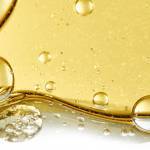Feeding and Supplementing the Endurance Horse, Part I: Overview and Antioxidants

The endurance horse is unique among equine athletes. Because of the prolonged demands placed upon the endurance horse with protracted moderate-intensity exertion, its performance may be influenced quickly by the quality of its diet. A simple diet of hay and oats may lack essential nutrients that allow the horse to perform as expected. Understanding how competition affects the nutrient needs of the horse will help you select the appropriate supplementation program for the individual horse.
Improving the Diet
Approximately 80 to 90% of the feed eaten by horses is used to satisfy their energy requirements. Horses, like people, utilise energy to power most of the chemical reactions within the body, particularly to fuel muscle contractions vital to the work effort. As such, any endurance diet should focus on providing adequate energy or calories. The major source of that energy is dietary carbohydrates (grass, hay, grain, molasses, etc.). Because the amount of energy available from forage alone can be a limiting factor for performance, grain is often added to increase the energy density of a diet.
Dietary fat is another source of energy readily employed by the horse for calories. Fat contains roughly 2.25 as much energy as an equal weight of carbohydrate, so less is needed to fuel body processes. Dietary fat has been scientifically proven to be advantageous for horses involved in prolonged bouts of exercise.
During long-duration, moderate-intensity exercise, the body depends on fat stores to supply energy for work. The addition of fat to the diet has been found to increase the ability of the horse to mobilise fat stores for energy, sparing the muscle glycogen (sugar) stores for more intense bouts of exercise. In a study done by Kentucky Equine Research comparing differences in fat utilisation between breeds, it was found that Arabians, the most common breed used for endurance, are much more efficient at mobilising and burning fat as an energy source than are Thoroughbreds.
Vegetable oils can be fed safely at up to 15% of the total diet, but some horses will not eat feed with large amounts of oil in it. Another source of fat is rice bran, the heat-stabilised outer layer of the rice kernel that contains 20% fat. Compared to oats, Equi-Jewel, a stabilised rice bran product, contains 150% of the digestible energy on a pound-for-pound basis. Therefore, Equi-Jewel is helpful in adding calories to the diet without much increase in meal size. Equi-Jewel is research proven to reduce lactic acid and heart rate during moderate exercise, and both these factors would help an endurance horse. Equi-Jewel also supports gut health in several ways: its addition helps create reduced-starch meals, it contains omega-6 fatty acids that reduce acid secretion, and it contains KER BMC, which buffers acid in the stomach and hindgut.
The remaining 10 to 20% of the diet is used to satisfy the nutrient requirements that drive the cellular processes inside the body. Protein is the major nutrient required by the body to support normal body functions. Vitamins and minerals play vital roles in metabolism but are needed in relatively small amounts. A simple diet of hay and oats may lack some of these key nutrients. Grain concentrates are designed to complement the nutrient profile of forages but must be fed at the recommended level to obtain balanced nutrition. For many endurance horses of Arabian descent, the recommended feeding rate of commercial grain mixes provides too many calories, resulting in excess weight gain.
A horse that eats less than the recommended amount may be short on the supplemental protein, vitamins, and minerals that are added to complement the deficiencies in forages. A specialised grain mixture designed for endurance horses is preferable. Failing that, a specially designed concentrate containing essential proteins, vitamins, and minerals can be used to top off a feed that is provided at a lower rate than recommended. If protein is sufficient in forage and grain, then adding a well-balanced vitamin and mineral supplement will be sufficient to fill in the shortcomings of the diet. Easy keepers do well with Gold Pellet, a scientifically formulated pellet to provide your horse with essential nutrients without the concern of adding calories to the diet.
Antioxidants for Muscle and Immune Support
Antioxidants are critical for support of the immune system. Human endurance athletes may have reduced immune function for about 70 hours following a bout of prolonged and intense exercise. During this period, the body may be particularly susceptible to infection, allowing viruses and bacteria to gain a foothold. Lack of sleep, severe mental stress, malnutrition, weight loss, or other stressors commonly associated with travel to the ride and competition can also exacerbate depression of immune function.
Although this research has been done in humans, it may very likely be similar for the equine endurance athlete. Whether human or equine, body cells need specific nutrients to overcome oxidative stress and prevent cell damage during and after endurance exercise. Many enzymes in immune cells require the presence of micronutrients, and critical roles have been defined for zinc, iron, copper, selenium, and vitamins A, B6, C, and E as well as coenzyme Q10.
Endurance competitions can also be hard on the horse’s muscles, which are in constant use during the hours of training necessary to compete successfully. During muscular exertion, free radicals, which are normal waste products of oxygen metabolism that can damage cell components, can cause muscular damage if not eliminated.
Certain nutrients, specifically vitamins C and E as well as selenium, are key antioxidants responsible for quenching free radicals that accumulate in muscle during endurance training and rides. These nutrients work together to reduce muscular soreness and stiffness associated with endurance exercise. Magnesium is necessary for proper nerve and muscle function and may be insufficient in the diet of some hard-working horses. These nutrients can be found in Preserve.
Nano-E delivers natural-source vitamin E that is highly bioavailable to horses, and high doses can be given just before rides, at the rides, and after rides to boost vitamin E levels and antioxidant support. A powerful antioxidant known as coenzyme Q10 also offers other benefits to endurance horses by supporting the mitochondria in aerobic ATP energy production. Coenzyme Q10 helps regenerate other antioxidants, such as vitamins E and C, which are used in combating oxidative stress, so Nano-Q10 is a must-have supplement for endurance athletes.








